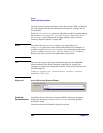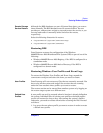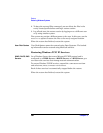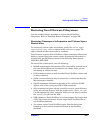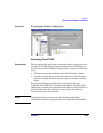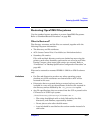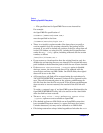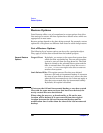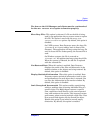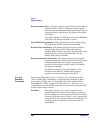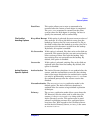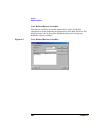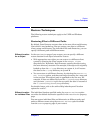
Restore
Restoring OpenVMS Filesystems
Chapter 6292
— File specifications for OpenVMS files are case insensitive.
For example:
An OpenVMS file specification of:
$1$DGA100:[USERS.DOE]LOGIN.COM;1
must be specified in the form:
/$1$DGA100/Users/Doe/Login.Com.1
• There is no implicit version number. You always have to specify a
version number. Only file versions selected for the backup will be
restored. If you wish to include all versions of the file, select them all
in the GUI window, or, using the CLI, include the file specifications
under the Only (-only) option, including wildcards for the version
number, as follows
/DKA1/dir1/filename.txt.*
• If you restore to a location other that the original location, only the
disk device and starting directory are changed. The original directory
path is added to the destination path to form the new restore location.
•If the Restore Time Attributes (-notouch) option is disabled
during a restore, the last accessed date will be updated with the
current date and time on ODS-5 disks. On ODS-2 disks, the original
dates will be set on the files.
• A file saved as a soft link will be restored using the equivalent of a
“DCL SET FILE/ENTER” command. No data will be restored in this
case. The soft link entered points to the primary path/filename for
this file from the time the file was saved. If the primary path/filename
does not exist or was not restored, the creation of the soft link will
fail.
To make a restored copy of an OpenVMS system disk bootable, the
OpenVMS WRITEBOOT utility has to be used to write a boot block
after the disk has been restored.
•The Move Busy Files (-move) and Restore Sparse Files
(-sparse) options are not available on OpenVMS.
• Files backed up from an ODS-5 disk on an OpenVMS system that
have extended filesystem names (i.e. upper and lower case letters,
Unicode characters, etc) may not be restored to an ODS-2 disk.
• Files being restored are always locked regardless of whether the Lock



